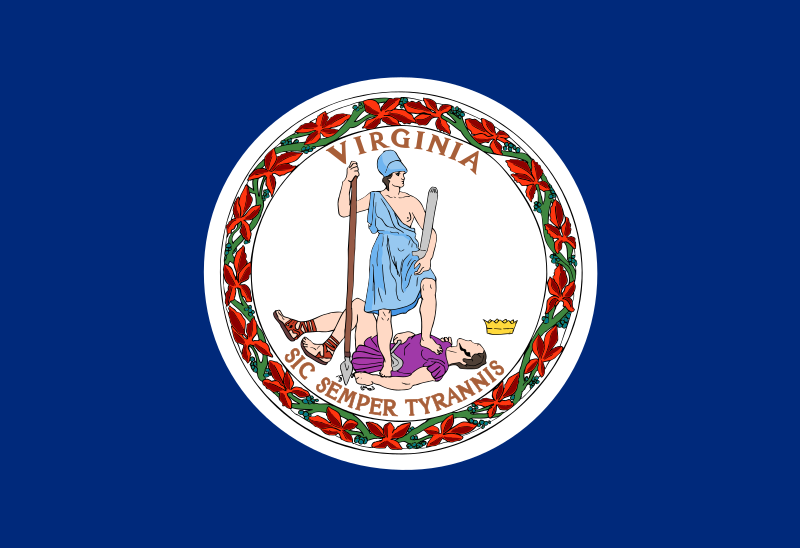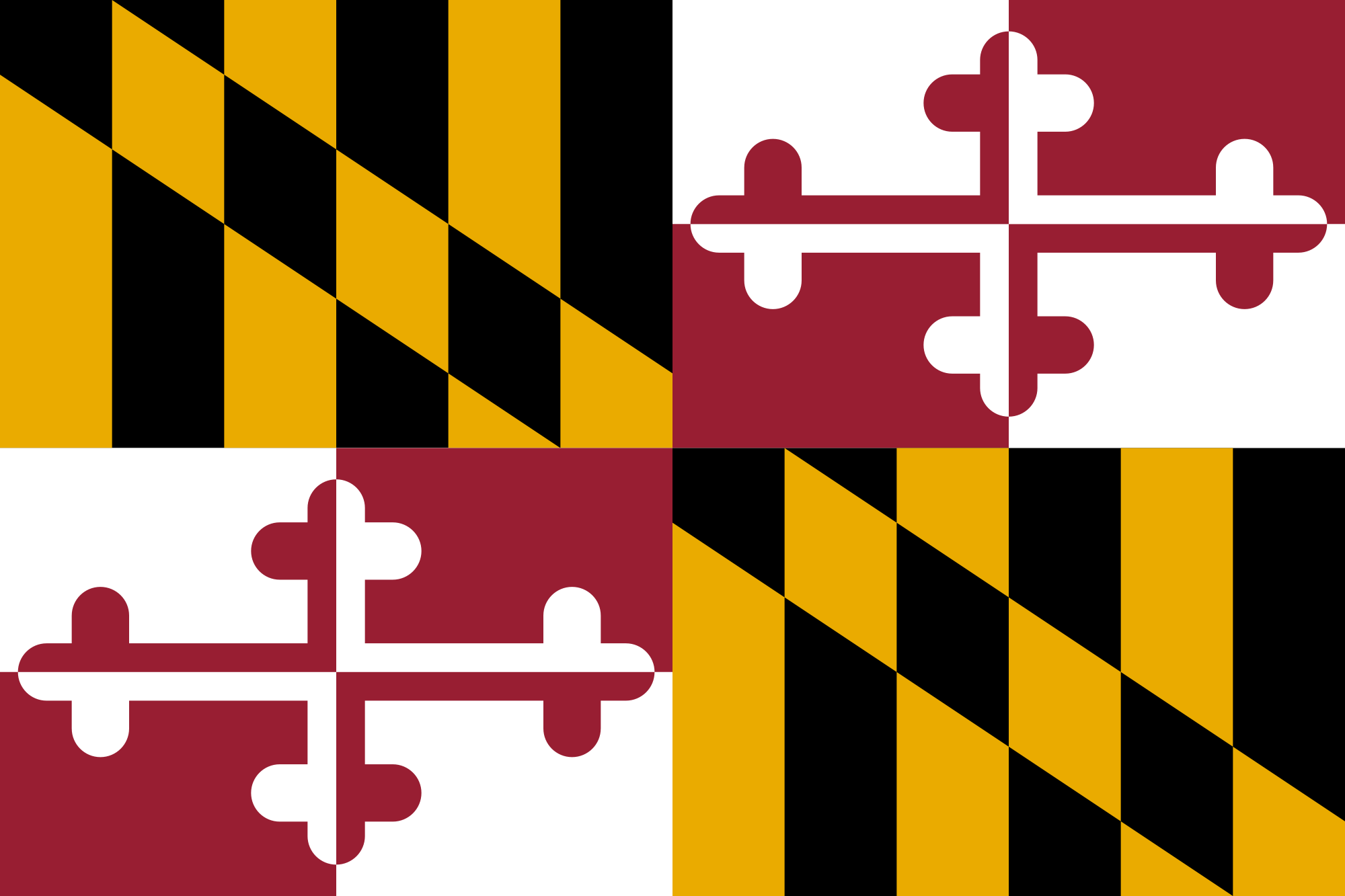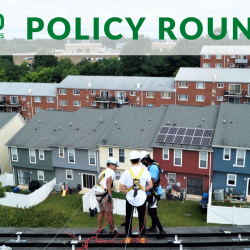Hello from GRID Alternatives Mid-Atlantic! This is the October edition of the GRID Mid-Atlantic Policy Roundup, keeping you up-to-date on renewable energy policy in the Mid-Atlantic region and beyond.
This month's roundup includes a long-awaited update on the D.C. Comprehensive Plan Framework, as well as information on the General Assembly elections in Virginia next month.

DISTRICT OF COLUMBIA
D.C. Council approves new Comprehensive Plan Framework
The Framework outlines the Comprehensive Plan, which will serve as a “blueprint” for guiding the city’s growth over the next two decades. Mayor Muriel Bowser said the rest of the plan, which has yet to be approved by the council, will be released this week. The last Comprehensive Plan was released in 2006 and updated in 2011.
The Framework is “a collection of priorities and principles to guide development decisions,” according to the Washington Post. Its priorities center around the need for more and better affordable housing, as D.C.’s population reached 700,000 residents last year for the first time since 1975. The full plan will include more information on policies about transportation, environmental protection, green space, and art.
"The concept of sustainability is an important theme for the Comprehensive Plan,” one Framework passage read, “including the renewal of brownfield sites, storm runoff mitigation, increased use of distributed energy resources like residential solar, and a renewed commitment to environmental justice in all neighborhoods of the city. Doing so requires a racially equitable approach that ensures the District's ecosystems are inclusive, interconnected, and strive to evenly distribute opportunities, benefits, and safeguards throughout the city."
D.C. Council to hold hearing on bill to establish Office of Resilience
Four members of the Council of the District of Columbia — Brandon Todd, Jack Evans, Mary Cheh, and Brianne Nadeau — are seeking to permanently establish an Office of Resilience. The Council will hold a public hearing about the action on Oct. 15.
D.C. Mayor Muriel Bowser initially established Resilient DC within the Office of the City Administrator in 2017, a result of Washington D.C. being selected to join the 100 Resilient Cities network in 2016. D.C.’s Resilience Strategy is intended to prepare and protect against acute shocks and chronic stresses that are most likely to cause major issues; for D.C., shocks could include rainfall flooding, extreme heat, cyber attack or economic downturn, while stresses include a lack of affordable housing, economic inequality, and climate change. The 160-page Resilience Strategy includes initiatives “to invest in existing pathways to the green economy, such as Solar Works DC, and explore new green pathways.”
The D.C. Council’s establishment of the Office of Resilience would, fittingly, make it more resilient in the long term by writing it into the city code into the Office of the City Administrator and would help make goals such as inclusive growth more permanent.

VIRGINIA
Virginia preparing for General Assembly election
Virginia is less than a month away from Election Day for state offices, which will be held on Nov. 5. (Virginia is one of four states to hold off-year elections for state offices.)
Virginia is at a pivotal stage in regards to its energy future. Large projects are on deck for offshore wind, and there is a growing push for the state to expand its solar profile. Last month, the governor signed Executive Order 43, putting the Commonwealth on a track to receive 100% of its energy from carbon-free sources by 2050. For these goals to be fairly met, and their benefits to be shared equally, it is crucial for Virginia’s delegates to be champions of renewable energy and energy equity. Energy equity means opening up pathways for residents of all incomes to receive solar energy and to join the solar energy workforce — elements that are critical to the mission of GRID Mid-Atlantic and to the language in Executive Order 43.
The Sierra Club has created a legislative scorecard to grade Virginia’s elected officials on their votes that have a direct impact on the state’s energy policy. The Virginia League of Conservation Voters also maintains a conservation scorecard.
Official voting information for Virginia residents can be found at the Virginia Department of Elections website. The last day to register to vote is Oct. 15.
Virginia’s energy economy requires reform to benefit residents and businesses
Earlier in the week, Virginia Delegates Lashrecse Aird and Jay Jones co-authored an op-ed in the Washington Post arguing that the Commonwealth’s restricted energy economy holds back businesses and residents.
Virginia’s monthly electric bills rank as the 11th-highest in the nation on average, according to a 2018 report from USA Today. Virginia’s cities also are among the nation’s leaders in eviction rates.
“As communities of color disproportionately make serious sacrifices to afford utility bills, this (energy) burden exacerbates systemic racial inequities in Virginia’s housing market,” Aird and Jones wrote … “We must ensure that all Virginians, particularly those most burdened by the status quo, have the opportunity to profit in a democratized energy system.”

MARYLAND
Bolder actions needed for Maryland to reach zero carbon emissions
Former oceanic scientist Donald F. Boesch wrote an op-ed in the Baltimore Sun urging Maryland to ramp up policy action in order to meet its goal for reducing emissions by 40% by 2030.
Maryland's proximity to the Chesapeake Bay makes it particularly vulnerable to sea-level rise in both rural and urban areas, Boesch writes. The seas could eventually rise 10 feet, though if we are able to keep the world's average temperature increase below 2 degrees Celsius, sea-level rise could be limited to 3 feet.

NATIONAL
Report: Extending the solar Investment Tax Credit would create $86 billion in investment
A 10-year forecast released on Sept. 28 by the Solar Energy Industries Association (SEIA) and Wood Mackenzie Power & Renewables found that a renewal of the solar ITC would not only spark billions in investment, but would also add 113,000 more jobs than if the ITC is allowed to step down at the end of 2019.
The solar ITC, which provides a 30% tax credit for solar systems on residential and commercial properties, was implemented in 2006 and has been a boost to the solar industry for over a decade. If not renewed, the commercial system credit will drop to a permanent 10% in 2022, and the residential system credit will be terminated. Solar industry leaders are joined by other green leaders, healthcare providers, and others in supporting an extension.
Rep. Mike Thompson of California introduced the Renewable Energy Extension Act of 2019 in the House in July to extend the ITC for an additional five years. The bill currently has 44 cosponsors, including seven Republicans, as well as Rep. Eleanor Holmes Norton of the District of Columbia. Sen. Catherine Cortez-Masto introduced a companion bill in the Senate with 16 cosponsors, including Sen. Chris Van Hollen from Maryland.

